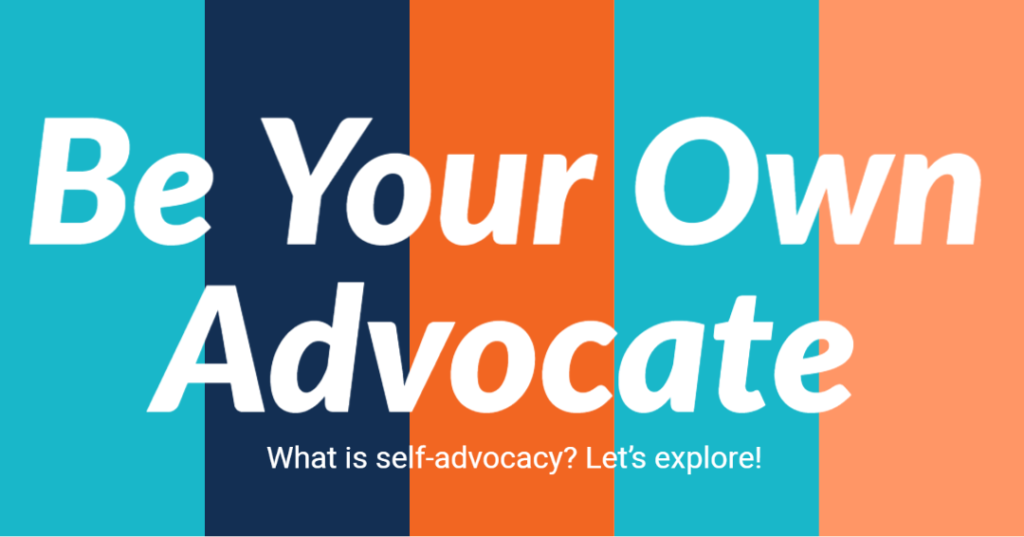Happy February from Your Employee Resource Advocate!
Have you ever advocated for yourself or someone else? Being your own advocate means that you ask for what you need while respecting the needs of others. For example, if you need to check out at the grocery store but the clerk seems to be ignoring you, ask politely to be served. If someone is standing or sitting too close to you, ask them respectfully to please give you a little more space. Sometimes you may feel upset when asking for what you need, remember to say thank you and stay calm. Advocating is very important! It allows you to make your own choices and say no respectfully when you need to without feeling guilty.
Sometimes being a self-advocate is easier said than done. Here are some steps to make the process a little easier.
How to Advocate
- Take a deep breath. Deep breathing gives your body lots of oxygen, and oxygen helps you feel calmer and think more clearly.
- Think about what just happened. Before you react to something someone said or did, think about it a bit. Ask yourself questions such as: “Did that person really mean to bump into me, or was it just an accident?” or “Is the clerk really ignoring me or is she just very busy? Maybe I need to be more patient.”
- Think about what you want to be different. Before you talk to the other person, make sure you know what you want to happen. Do you want to be treated differently? Do you want that person to stop doing something?
- Speak clearly and slowly. Start by saying something like, “I would like to talk with you about…” and then calmly describe how you see the situation.
- Let the other person speak. Being a self-advocate doesn’t mean that only you talk. The other person needs a chance to respond to what you are saying. If that person becomes impatient, try to stay calm and take a deep breath.
- Don’t expect immediate results. Change is not always instant or lasting. Sometimes it takes many conversations with the other person before anything changes. You may even have to remind the person more than once.
- Ask someone to help. There may be times when you and the other person cannot agree or the other person becomes unreasonable. One of the best parts of being your own advocate is that you don’t have to solve all the problems on your own. You can and should ask for help. Asking for help is also advocating for yourself.
- Understand your disability. In many situations, you may need to take the responsibility for explaining your needs based on your disability to others. Practice speaking openly about your needs and strengths with your family and friends. This will make it easier in new situations and with people who don’t know you.
Find out more about these steps from the Pacer Center. If you want to talk about advocacy, contact your Employee Resource Advocate! You are important. Your needs matter. Use your voice!
Did you know that Job One participates in an advocacy group called the A Team? The Missouri A-Team organization was formed to provide individuals with disabilities, their guardians, caregivers and concerned community members a way to be active participants for the advocacy of employment choices for adults with disabilities. The “A” in A-team stands for advocacy! Learn more at https://www.jobonekc.org/a-team-job-one-chapter/

